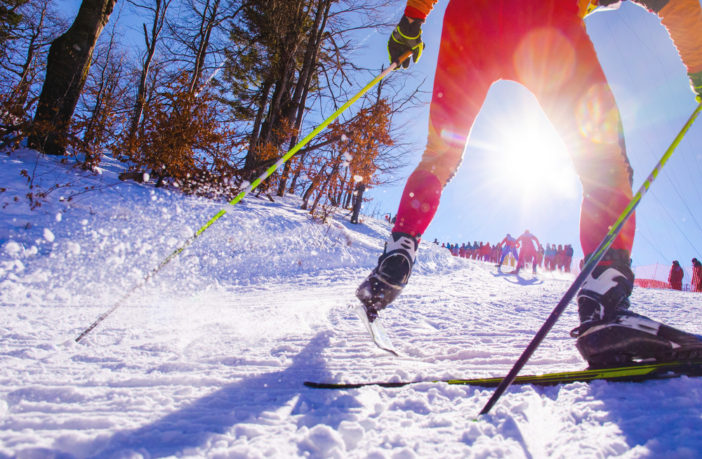In the run-up to the forthcoming Olympic Winter Games in Beijing next month, seeing athletes from across the world competing in winter sports such as bobsleigh, ice skating and downhill skiing, a newly published policy paper suggests that sporting categories might change in the future to better accommodate sporting endeavour, inclusion and fairness.
The co-authored policy document, Fair Game, published by Canadian thinktank McDonald-Laurier Institute, proposes that existing “men” and “women” categories in all levels of sport are at risk of being misunderstood, and becoming unfit for the purpose of securing fairness. The paper, directed at policy makers and non-experts, builds on peer-reviewed research published by each of the authors.
Lead author Dr Jon Pike, senior lecturer in Philosophy and staff tutor at The Open University and his co-authors suggest a way forward which contests arguments advocating entry into sporting categories by self-identification.
Their paper puts forward an idea to replace existing “men” and “women” sports competing categories with firstly a new “Open” category – in which anyone can participate who wishes to – and secondly an exclusively “Female” category, where female refers to the sex recorded at birth.
Pike’s proposal of two classes; Female and Open, was endorsed as a leading policy option in the report of the Sports Council Equality Group, published last year, and discussed in the House of Lords.
Guidance given to sports organisations
In their paper Pike, and co-authors Dr Emma Hilton and Professor Leslie A. Howe primarily concern themselves with trans women’s participation rather than trans men’s participation, which they argue raises fewer issues about fairness.
Recent instances of trans women’s participation in high level sport have gained media and public attention. This policy paper comes as the International Olympic Committee (IOC) last year published its IOC Framework on Fairness, Inclusion and Non-Discrimination on the Basis of Gender Identity and Sex Variations, which received a cool reception from some International Federations and sports scientists
The paper argues that, where sex categories are justified, it is not appropriate for those who are born male but who identify as women to compete in the women’s category in sports. They argue it is “sometimes not safe and always unfair given the present and conceivable future state of medical transition”.
Instead they suggest that science and research should form the basis for such policies to ensure fairness. The authors say:
“The objective for us is to make sport as open and inclusive as possible, given how important sport is and how bodies are constructed. The task is to adjust how we think about and organise sport in ways that are maximally inclusive, while remaining fair and safe for all participants.”
Inclusion, they point out, goes both ways: “If inclusion means that sport becomes incoherent due to a failure of fairness in procedure or an increased expectation of harm beyond that normally attributable to the sport activity itself, there is less incentive for women to participate,” they suggest.
The policy paper cites examples where “the different sports-relevant outputs of males and females create different athletic performance capacity”. It explores areas such as weight and muscle mass across the body as well as height and includes performance charts across different sports and compare areas such as sprinting 100m.
“We argue for a classification system in which everyone can compete fairly and fully. This consists of age categories, sex categories, impairment categories, and, sometimes, weight categories. It is important to note that these categories all refer to properties of bodies, not properties of identification.”
The authors suggest that making gender identity the basis for categorisation in sport is also “not practicable” because the number of possible gender identities is in principle infinite. They take issue with the idea that a “human right to sport” implies that there is also a right to compete in a category determined by gender ID. Their paper argues that the exercise of our rights should not make society a more unfair place.
Dr Pike is a philosopher specialising in the ethics and metaphysics of sport and former chair of the British Philosophy of Sport Association. Dr Hilton is a developmental biologist at the University of Manchester, studying aspects of human genetic disease. Prof Howe is in the Dept of Philosophy at the University of Saskatchewan, Canada, where she has taught since 1997.



